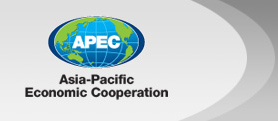APEC economy: Canada; Jurisdiction: Alberta
Temporary practice ('fly-in, fly-out' practice)
There is no express rule allowing temporary practice by foreign lawyers.
Limited licensing of foreign lawyers (foreign legal consultant rules)
A foreign lawyer can obtain a limited licence entitling them to offer advisory services in foreign and international law (ie become a foreign legal consultant).
The relevant provisions are found in the rules of the Law Society of Alberta:
- Rules 74 to 80, and the Legal Profession Act, section 106.
Details of the requirements for qualifying for a limited licence and what a limited licence entitles a foreign lawyer to do are included in the database. The requirements include that the foreign lawyer must apply for a licence as a foreign legal consultant, must provide proof of good standing in the legal profession of the country where they are licensed; must provide proof that they have been engaged in the practice of law for at least three years and various other requirements.
In order to offer advisory services in foreign and international law, a foreign legal consultant is not required to enter a commercial association with local lawyers.
As at June 2009, approximately two limited licences had been granted to foreign lawyers in this jurisdiction.
Full licensing
A foreign lawyer can obtain a full licence to practise law in this jurisdiction.
The relevant legislation is the Legal Profession Act and the rules of the Law Society of Alberta, Rules 47 to 69.1.
In order to obtain a full licence to practise law in this jurisdiction, foreign lawyers must apply to the National Committee on Accreditation for evaluation of their credentials and experience. The National Committee on Accreditation establishes the educational and practising criteria an applicant must meet to be considered for admission to the Law Society. Once an applicant satisfies those criteria, he or she must follow the same process for admission as domestic graduates.
These requirements are the same as the rules applicable to local applicants, except that most local applicants would have a Canadian law degree and thus would not have to apply to the National Committee on Accreditation for an equivalency, and instead would apply directly to the Law Society on the basis of their Canadian common law degree.
Commercial association between lawyers and law firms
In this jurisdiction:
- local lawyers may be employed by another local lawyer of a local firm;
- local lawyers may be employed by a foreign lawyer or foreign firm;
- foreign lawyers may provide services in some other form of commercial association with local lawyers;
- foreign firms are permitted to establish a commercial presence (a permanent office) to offer advisory services in foreign and international law;
- foreign firms are permitted to enter into commercial association with local lawyers or law firms.
Other form of practice requirements includes that foreign legal consultants who are not also licensed to practise law in Alberta may not be a partner in a limited liability partnership in Alberta, and foreign legal consultants may not own shares in a professional corporation that is carrying on the practice of law in Alberta.
Other regulatory issues
In this jurisdiction:
- there are specific rules in relation to advertising. These rules are found in Rule 5 of the Code of Professional Conduct. Further details are available in the database;
- there are specific rules in relation to use of names by lawyers or law firms. These rules are found in Rule 5 of the Code of Professional Conduct (further information is available in the database).
Foreign lawyers and firms are treated differently to local lawyers in the application of these rules. The Rules of the Law Society of Alberta, Rule 78(2) provides that a licensed foreign legal consultant when engaging in advertising or other form of marketing activity in Alberta must use the designation licensed foreign legal consultant, must state the country where they are qualified to give legal advice and shall not use any designation which might lead a reasonable person to conclude that the consultant is a member of the Law Society.
Contacts
| Category | Name | Website or other contact details |
|---|---|---|
| Organisation(s) that controls licensing of lawyers | Law Society of Alberta | www.lawsociety.ab.ca |
| Peak professional association representing the legal profession | Canadian Bar Association Alberta | www.cba-alberta.org |
| Other associations playing a significant role in developing policy for the legal profession | Federation of Law Societies of Canada | www.flsc.ca |
Other issues
In Canada, regulation of the legal profession is the exclusive responsibility of the Provincial and Territorial Law Societies. Law Societies are mandated by provincial law and territorial legislation to regulate the profession in the public interest. This includes setting rules governing admission to the profession. As such, the regulation of foreign lawyers who wish to practise in Canada is governed by the rules of the individual Law Societies. Law Societies are not representatives of, or advocates for, the profession. That role is fulfilled by organisations such as the Canadian Bar Association and its branches.
